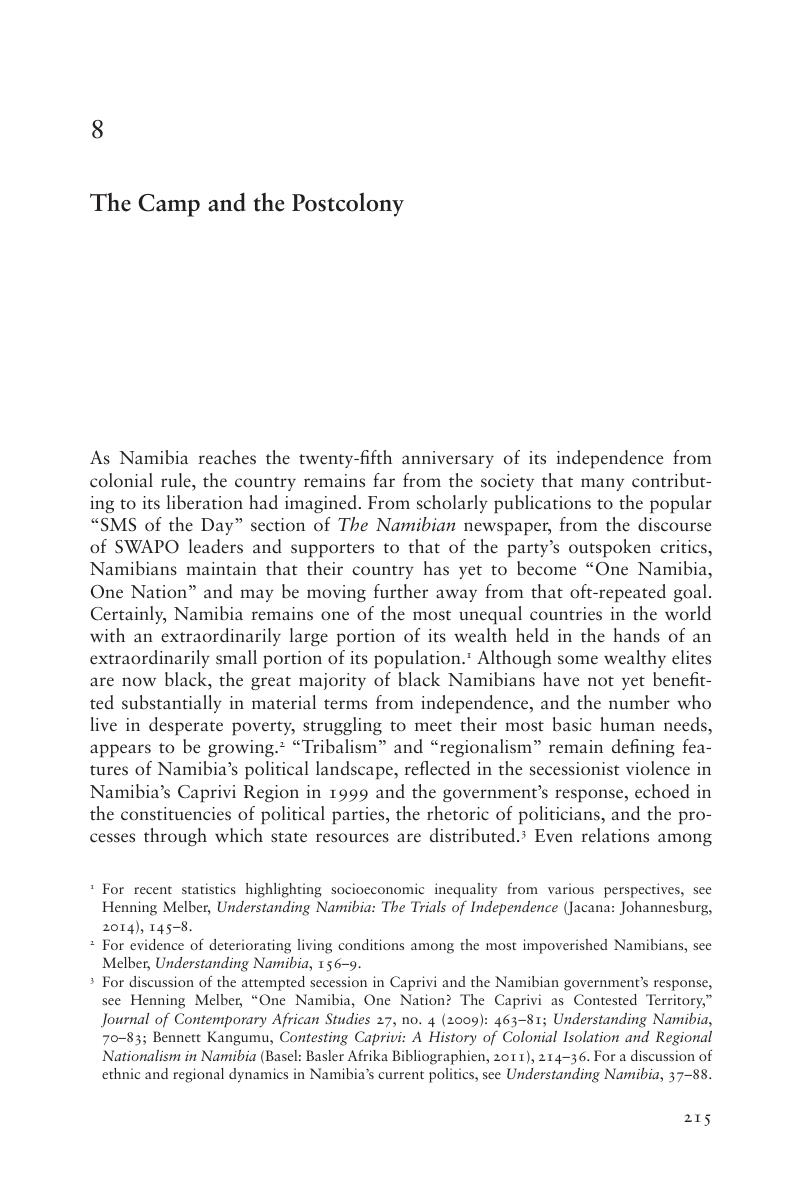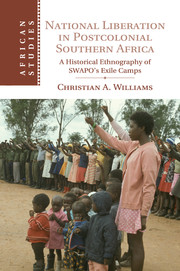Book contents
- National Liberation in Postcolonial Southern Africa
- African Studies
- National Liberation in Postcolonial Southern Africa
- Copyright page
- Contents
- Maps and Photos
- Book part
- Glossary
- Part I Camp, Nation, History
- Part II Camps and the Formation of a Nation
- Part III Camps and the Production of History
- Bibliography
- Index
- Series page
- References
Bibliography
Published online by Cambridge University Press: 05 October 2015
- National Liberation in Postcolonial Southern Africa
- African Studies
- National Liberation in Postcolonial Southern Africa
- Copyright page
- Contents
- Maps and Photos
- Book part
- Glossary
- Part I Camp, Nation, History
- Part II Camps and the Formation of a Nation
- Part III Camps and the Production of History
- Bibliography
- Index
- Series page
- References
Summary

- Type
- Chapter
- Information
- National Liberation in Postcolonial Southern AfricaA Historical Ethnography of SWAPO's Exile Camps, pp. 233 - 250Publisher: Cambridge University PressPrint publication year: 2015



